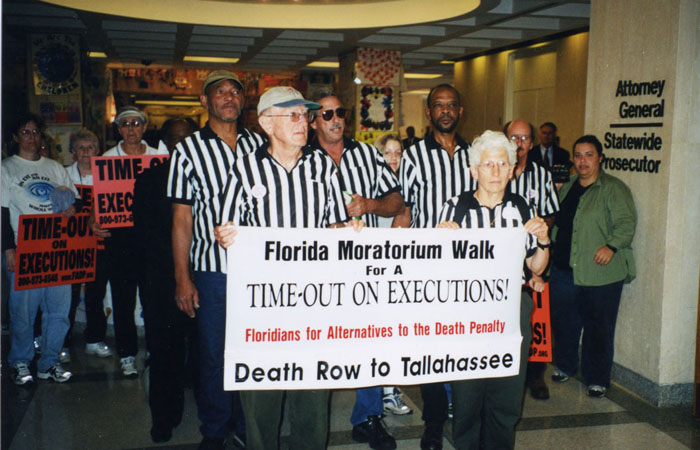Defense Team Research Material, 1972-1995 1.26 cubic ft.
This series contains the research material that Ford's defense team accumulated over the course of their representation of Ford and includes research material from years prior to and after the case. This series contains notes on cases in progress as well as some material from related cases. There are newsletters, briefings, pamphlets, bulletins, essays, reports, and publications which discuss anti-death penalty and related legal issues. Also included are photocopies of selections from various undated publications about the death penalty. This series represents literature from a wide spectrum of death penalty abolitionists. Several folders contain news clippings organized by year that give a good overview of related death penalty cases and issues. Many of the news clippings were photocopied before deposit in the Department of Special Collections and Archives, while others required preservation photocopying. Also of note are several papers on death penalty issues written by professors and others representing law schools and universities in the United States.
